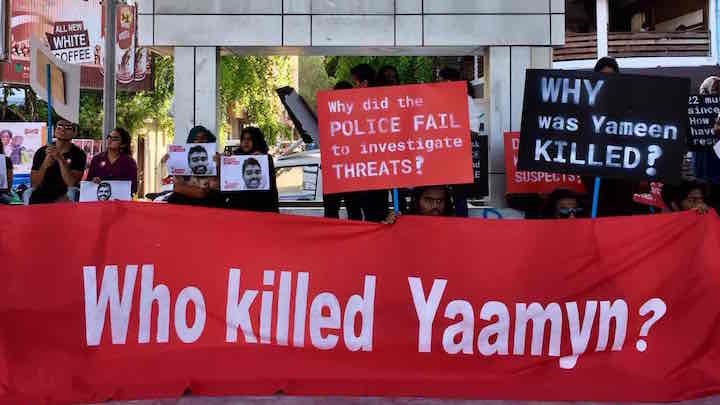‘Next is you’: More death threats follow blogger’s murder
Prominent clerics accused of justifying the killing of ‘apostates’ as death threats mount in the wake of blogger Yameen Rasheed’s murder.

10 May 2017, 09:00
“next is u. We’re in the neighborhood. :)”
“your frnd was screaming like a girl.”
This was a comment left by a Maldivian Facebook user on a post mourning the murder of blogger Yameen Rasheed. It was just one of many cyber threats made against the 29-year-old’s friends and others in the wake of his killing on April 23.
In the days since Yameen’s mutilated body was found in the stairway to his apartment, his family members and friends said their grief has been compounded by threats of more killings, and an array of comments by clerics and other religious figures, justifying his murder claiming he was an apostate.
Become a member
Get full access to our archive and personalise your experience.
Already a member?
Discussion
No comments yet. Be the first to share your thoughts!
No comments yet. Be the first to join the conversation!
Join the Conversation
Sign in to share your thoughts under an alias and take part in the discussion. Independent journalism thrives on open, respectful debate — your voice matters.




